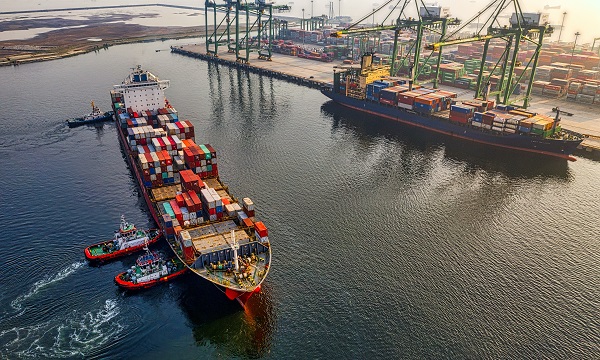
The use of external finance among smaller businesses in Wales grew substantially in late 2024 to 57% from 49% in late 2023.
The 2025 Wales SME Access to Finance Report by British Business Bank and Economic Intelligence Wales aims to track the supply of, and demand for, finance across smaller businesses in Wales within the broader Welsh economic context, and sub-regional economic contexts. It is based on a bespoke survey of 500 smaller businesses in Wales, undertaken for the second time in October 2024.
Credit cards were identified as the most commonly used finance type among smaller businesses in Wales, with a 25% usage rate. This was followed by Covid loans (23%) and business overdrafts (16%).
The report also revealed 21% of smaller businesses in Wales anticipate needing additional finance over the next year, up from 16% in the previous year.
Of these smaller businesses looking to secure finance, 56% said they were considering business loans and 37% grants, with almost half (46%) needing finance for working capital while 39% needed it for capital expenditure. While this potentially paints a more positive picture for growth among smaller Welsh businesses, it also reveals that a larger proportion need finance to survive, the report authors said.
While 57% of smaller businesses in Wales were using external finance by late 2024, a figure comparable to other UK devolved nations, distinct regional trends reveal variations in financial confidence, requirements, and barriers.
External finance usage rates were generally consistent across Wales, but South East Wales saw significantly lower grant uptake (3%) than other regions. This could reflect the region’s focus on innovation-led businesses in Cardiff and Newport, where many companies seek equity funding to support research and development, as well as easier access to a broader range of finance types and providers compared to businesses in more remote or rural locations, the authors said.
The scale of funding requirements also varied between regions. South West Wales, home to Swansea’s growing innovation hub, with strong business and academic links to Swansea University, had a higher proportion of businesses seeking more substantial finance, with 16% of businesses who needed finance over the next year intending to seek more than £250,000, including for research and development. On the other hand, smaller business in North Wales were the least likely to require more than £250,000 in finance (4%), which may reflect the prevalence of smaller enterprises in tourism and retail.
Meanwhile, Mid Wales, with its rural and agriculture-driven economy, had fewer businesses anticipating the need for additional finance (14%), suggesting a more stable business environment with less immediate demand for expansion capital.
Despite similar views on barriers to accessing finance across Wales, smaller businesses in South West Wales were slightly more likely to report difficulties (26%), compared to North Wales (20%), South East Wales (20%) and Mid Wales (15%). This could be attributed to the region’s ongoing economic transition from traditional sectors like agriculture and manufacturing to emerging industries such as life sciences and marine technology.
In North Wales, the report finds that 18% of smaller businesses with debt feel their debt burden is unmanageable, possibly due to the seasonal nature of its tourism-driven economy. While investment initiatives like the North Wales Growth Deal and Anglesey’s freeport status aim to stimulate economic growth, businesses in the region may still be navigating financial uncertainty, the authors say.
Businesses in the South West region also expressed the highest confidence (75%) in securing the finance they required over the next year, despite being more inclined to report difficulties in accessing finance than their counterparts based elsewhere. This optimism could be linked to major infrastructure projects such as the Celtic Freeport and Swansea Bay City Deal, which are expected to unlock new investment opportunities.
In South East Wales the highest proportion of businesses (29%) expected growth. Business performance expectations followed similar patterns across Wales, but with some notable differences, where smaller businesses benefit from well-developed infrastructure and strong support networks.
Conversely, North Wales had a greater share of smaller businesses anticipating contraction (18%) or trading difficulties (8%), potentially linked to economic uncertainty in tourism and retail.
Susan Nightingale, UK Network Director for the Devolved Nations at British Business Bank, said:
“Wales is home to a wealth of diverse and dynamic small business, with firms operating across a broad range of sectors, from cutting-edge fintech and life sciences, to manufacturing, tourism, and agriculture.
“This Wales SME Access to Finance Report highlights the unique financial needs and ambitions of smaller businesses across Wales’ different regions, each shaped by its own economic strengths and challenges.
“It’s encouraging to see more Welsh smaller businesses making use of external finance, demonstrating a strong appetite for investment and growth. That said, high levels of credit card usage suggest finance choices are driven by familiarity and ease of access as opposed to informed choices about what is most appropriate for the needs and longevity of the business. We all have a job to do, to continue to raise awareness of the range of finance options available and to ensure businesses, irrespective of where they are based, have equal knowledge and access to capital.”
Giles Thorley, Chief Executive at the Development Bank of Wales, said:
“This report provides timely and detailed analysis of the current finance landscape for small businesses in Wales.
“It’s encouraging to see that more Welsh businesses are accessing external finance, and that many are planning to grow over the coming year. We see first-hand the difference that the right funding at the right time can make and over the past five years, the Development Bank of Wales has supported 3,402 businesses across Wales, directly investing over £705 million and securing an additional £335 million in private investment—contributing over £1 billion to the Welsh economy. Our teams are based in communities throughout Wales and are ready to support more businesses with both loans and equity investment.
“We’ve welcomed this opportunity for Economic Intelligence Wales to collaborate with the British Business Bank to improve the evidence base and, therefore, the understanding of access to finance issues in Wales as a whole, as well as in each of the Welsh regions.”














